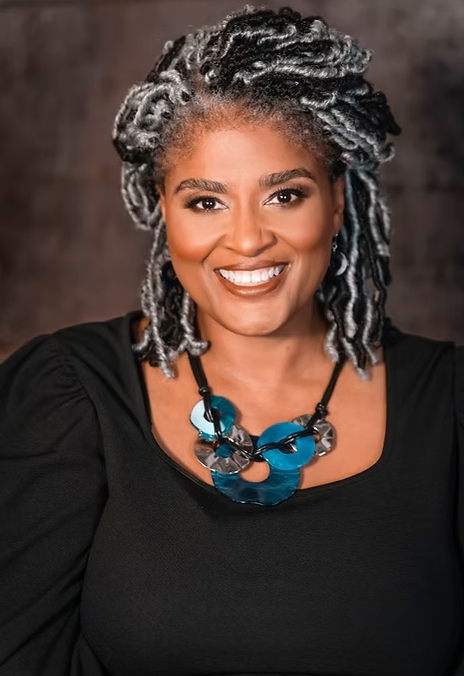The following is an excerpt from Front Porch Wisdom by Dr. Froswa’ Booker-Drew. Front Porch Wisdom is available now wherever books are sold.
Some of you may remember the song “What’s Love Got to Do With It?” by Tina Turner. Tina was reflecting on an abusive relationship, noting that love wasn’t enough to keep things together. Tina was
married to Ike Turner, and her strength and courage eventually propelled her to leave the abusive marriage and save her own life. In the divorce she asked for nothing but to keep her name. Many would say she was starting over, but she understood she was bringing something with her that was invaluable: her power. With unwavering faith in herself and her abilities, she believed that her potential was limitless. Tina assessed her circumstances and aspired to a better future. She had developed a practice of reflection and tapped into her inner leader.
So what do leadership, women, and work have to do with the front porch and our faith? With a slight twist on the lyrics, we must conduct a similar examination. We must examine our thinking and interpretation of who we are and what God says about us. Many of us have grown up in faith communities that have led us to believe we are inferior to men. This misunderstanding is often rooted in the interpretation of Genesis 2:18, which states, “And Jehovah God said, It is not good that the man should be alone; I will make him a help meet for him” (ASV).
When we do not see our value in Christ, it impacts how we see ourselves in other areas of life. Ezer kenegdo is a Hebrew phrase that means “a helper suitable for him” and is used in the Bible to describe
the relationship between Adam and Eve. Kenegdo says the thing God makes for Adam will be like him. So this creation will be on the same level as Adam, not better or worse. This helper will be half of a pair
and will relate to Adam as the South Pole relates to the North Pole. Ezer is also interpreted as “warrior,” and ezer kenegdo can be interpreted as “a powerful complement.” How would our lives be different if we had known earlier that we are not a “suitable helper” but were created to be a powerful complement—and that we have value to each other, to men, and to God. We must own this and walk in it. This does not minimize or diminish our brothers but recognizes our significance.
Ezer kenegdo has significant implications for women’s leadership. In this context, the phrase is a powerful affirmation of women’s value and potential. It suggests that women are not simply helpers or companions to men but powerful and capable leaders in their own right. This can be a powerful source of inspiration and empowerment for women who desire to lead or are currently leading. Ezer kenegdo can also shift the way we think about leadership. Traditionally leadership has been seen as a masculine trait; however, ezer kenegdo suggests that it’s not about dominance or power but partnership and collaboration. This can be a helpful framework for women who want to lead in a way that is more inclusive and collaborative.
In these ways ezer kenegdo can help women leaders see themselves as powerful and capable and help them build strong partnerships with others, both men and women. This can help women leaders overcome the challenges they face in the workplace and achieve success in their careers.
It’s important to emphasize the remarkable nature of women as God’s creative masterpieces. Just like men, women are the embodiment of divine genius and are fearfully and wonderfully made. This identity as image-bearers of God is inherent and unchanging.
Reflection
How does the meaning of ezer kenegdo resonate with you? In what ways are you a warrior?
What is God saying to you about your leadership journey through the stories of women in the Bible?
Prayer
Dear Lord, I am grateful for revealing the significance of women in the Scriptures to me. I am confident there is a divine purpose for my life and the work I am called to do. I ask you to empower me to make a positive impact on the world. Grant me the strength to serve others, lead with wisdom and compassion, and live a life that brings honor and glory to your name. In the precious name of Jesus, amen.
Adapted from Front Porch Wisdom by Dr. Froswa’ Booker-Drew. ©2025 by Dr. Froswa’ Booker-Drew. Used by permission of InterVarsity Press. www.ivpress.com.

About Dr. Froswa’ Booker-Drew
Froswa’ Booker-Drew (PhD, Antioch) is the founder of Soulstice Consultancy providing philanthropic guidance, community engagement strategies, and leadership development for companies and nonprofits. She is also an adjunct faculty member at Tulane University and a research affiliate at Antioch University. Froswa’ is the author of five books including Front Porch Wisdom (InterVarsity Press), as well as the award-winning Empowering Charity: A New Narrative of Philanthropy and is the cofounder of HERitage Giving Circle. She has an adult daughter and a grandcat.





